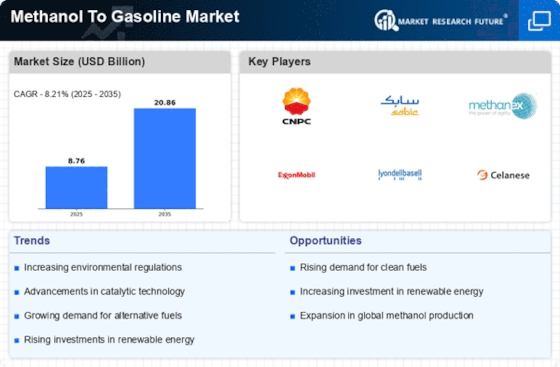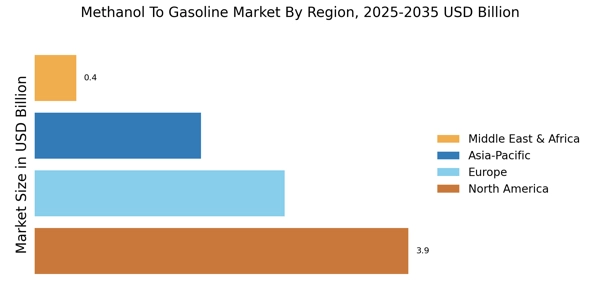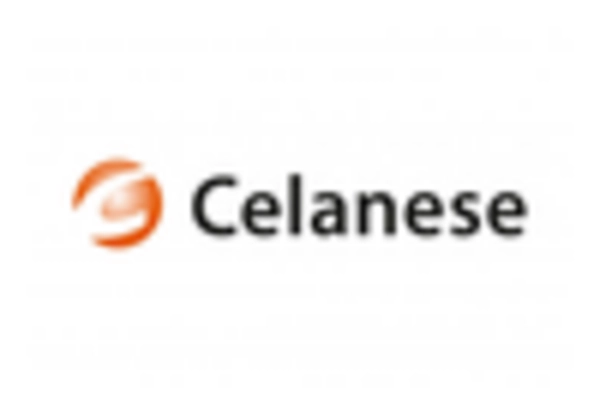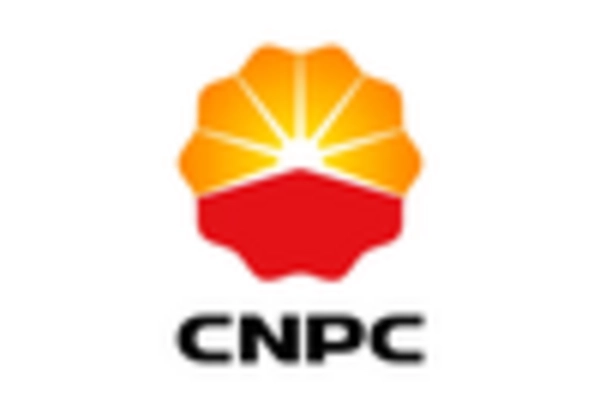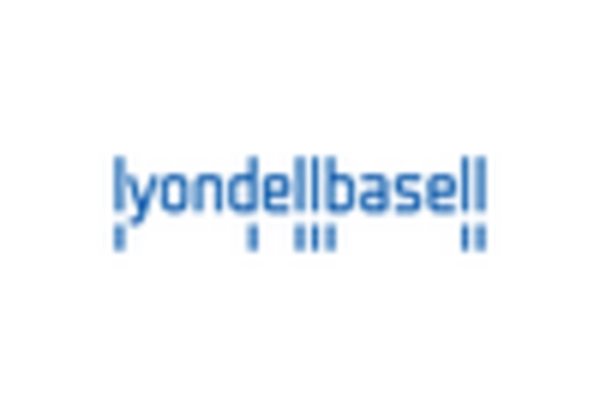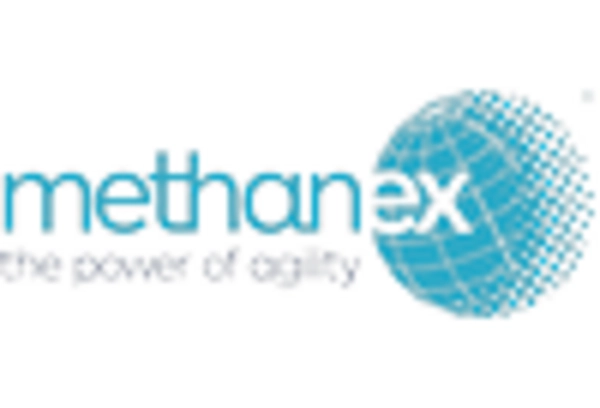Increasing Oil Prices
Fluctuating oil prices are a significant driver for the Methanol To Gasoline Market. As crude oil prices rise, the cost of traditional gasoline also escalates, prompting consumers and industries to seek alternative fuel sources. Methanol, often produced at a lower cost, presents a financially viable option during periods of high oil prices. Recent trends indicate that as oil prices approach $100 per barrel, the demand for methanol as a substitute fuel is likely to surge. This economic pressure encourages investments in methanol production facilities, thereby enhancing the Methanol To Gasoline Market's growth potential. The interplay between oil prices and alternative fuels is crucial for shaping market dynamics.
Rising Demand for Clean Fuels
The Methanol To Gasoline Market is experiencing a notable increase in demand for cleaner fuel alternatives. As environmental concerns escalate, consumers and industries alike are seeking sustainable energy solutions. Methanol, derived from renewable sources, offers a lower carbon footprint compared to traditional gasoline. This shift is reflected in the growing investments in methanol production facilities, which are projected to reach a capacity of over 100 million tons by 2026. The transition towards cleaner fuels is not merely a trend but a necessity, as countries aim to meet stringent emissions targets. Consequently, the Methanol To Gasoline Market is poised for substantial growth, driven by the need for eco-friendly fuel options.
Supportive Regulatory Frameworks
The Methanol To Gasoline Market benefits from supportive regulatory frameworks that encourage the adoption of alternative fuels. Governments worldwide are implementing policies that promote the use of methanol as a viable fuel source. Incentives such as tax breaks, subsidies, and research grants are being offered to companies investing in methanol production and infrastructure. For instance, recent legislation in several regions mandates a gradual increase in the use of renewable fuels, which directly supports the growth of the methanol sector. This regulatory backing not only fosters innovation but also enhances market stability, making the Methanol To Gasoline Market an attractive investment opportunity.
Growing Interest in Energy Security
Energy security remains a paramount concern for many nations, driving interest in the Methanol To Gasoline Market. As geopolitical tensions and supply chain vulnerabilities persist, countries are increasingly looking to diversify their energy sources. Methanol, being domestically produced from various feedstocks, offers a strategic advantage in reducing dependency on imported fuels. This trend is evident in several nations that are investing in methanol production to bolster their energy independence. The emphasis on energy security not only supports the growth of the Methanol To Gasoline Market but also aligns with broader goals of sustainability and resilience in energy supply.
Technological Innovations in Production
Technological advancements play a pivotal role in shaping the Methanol To Gasoline Market. Innovations in catalytic processes and production techniques have enhanced the efficiency of converting methanol to gasoline. Recent developments indicate that new catalysts can improve conversion rates by up to 30%, significantly reducing production costs. Furthermore, the integration of automation and digital technologies in production facilities is streamlining operations, leading to increased output and reduced waste. As these technologies continue to evolve, they are likely to attract further investments, thereby bolstering the Methanol To Gasoline Market. The emphasis on efficiency and cost-effectiveness is crucial for maintaining competitiveness in the energy sector.


